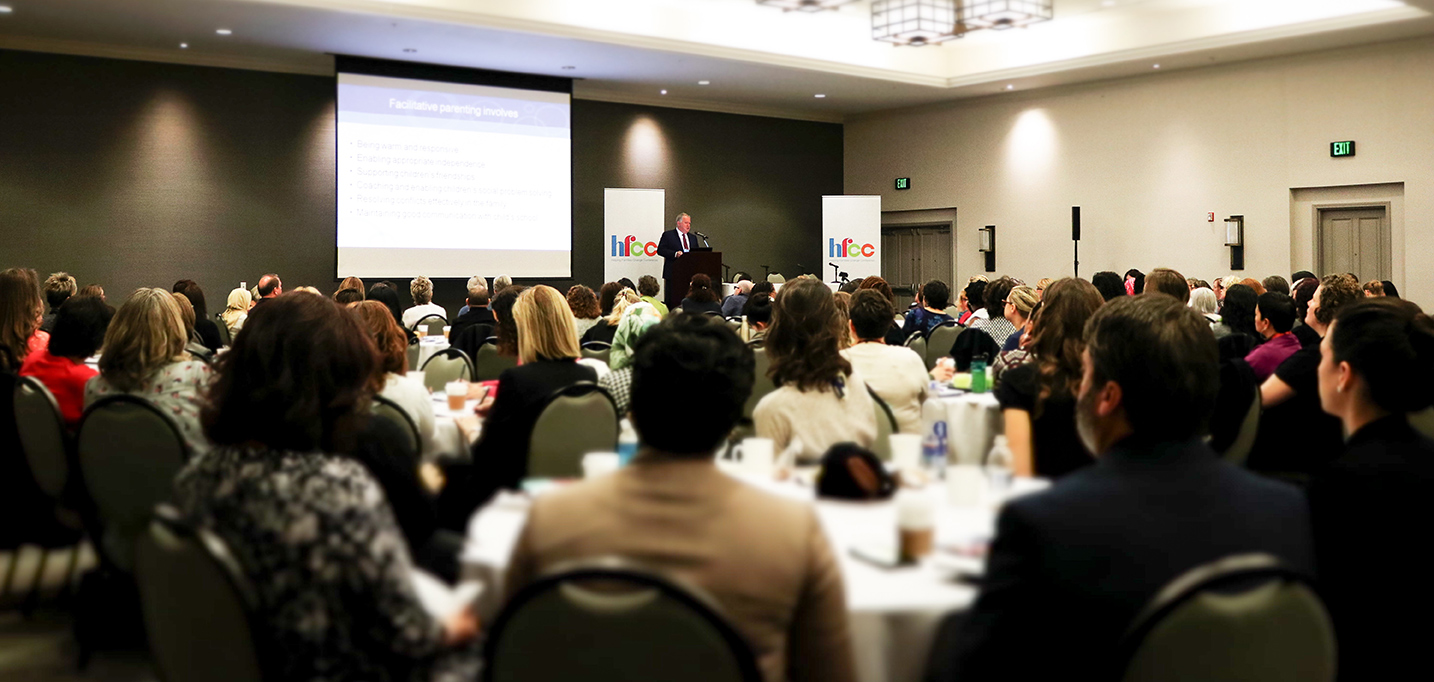The pathway to addressing many of the world’s biggest social problems could be found in improved parenting according to a major international parenting conference presented by The University of Queensland and the Life Course Centre.

The 20th biennial Helping Families Change Conference (HFCC) taking place in Brisbane from 5-7 February will take a wide-ranging view of the benefits that can flow from improved child and family development and wellbeing – from dealing with the emotional trauma of Australia’s bushfire crisis, and tackling big global issues such as climate change, to meeting the world’s sustainable development goals.
“The impact that positive parenting can have has been vastly underestimated,” says Professor Matthew Sanders, Director of the Parenting & Family Support Centre at UQ’s School of Psychology.
“There are the obvious benefits to children but there are also many benefits to adults, including improved relationships, problem solving and mental health. We are now demonstrating how evidence-based parenting support can transform whole communities. Through this, parenting can provide a common pathway to major societal change and addressing many of the world’s biggest and most complex problems.”
Professor Sanders will provide the opening keynote address at the three-day conference, where he will focus on accomplishments to date and future opportunities for positive parenting to transform children, families and communities. Professor Sanders is the founder of the Triple P – Positive Parenting Program, the world’s most widely used parenting support system, and he instigated the first Helping Families Change Conference in Brisbane in 1995.
 That first conference attracted only a handful of delegates, while this year’s will draw 200-300 researchers, practitioners and policymakers from 20-25 countries. This includes participants from as far afield as Columbia, Chile and Sweden, to conference topics on parenting interventions in Rwanda, Pakistan, Papua New Guinea and remote Aboriginal communities in Australia.
That first conference attracted only a handful of delegates, while this year’s will draw 200-300 researchers, practitioners and policymakers from 20-25 countries. This includes participants from as far afield as Columbia, Chile and Sweden, to conference topics on parenting interventions in Rwanda, Pakistan, Papua New Guinea and remote Aboriginal communities in Australia.
The conference will feature a welcome addresses by Professor Peter Høj, Vice-Chancellor and President of The University of Queensland, and the Hon. Di Farmer MP, Queensland Minister for Child Safety, Youth and Women, and Minister for Prevention of Domestic and Family Violence.
As well as the big-picture potential of parenting to tackle major global problems, the conference also covers more specific parenting issues, such as raising depressed or anxious teenagers, managing children’s screen time, same-sex parenting, the benefits of pets, and flexible work practices.
Other keynote speakers include:
- Dr Theresa Betancourt from the Boston College School of Social Work presenting on preventing violence in young children and families in Rwanda
- Dr Brian Bumbarger from the Prevention Research Center at Colorado State University presenting on the infrastructure and capacity needed to scale family support interventions
- Professor Elizabeth Elliott from the Faculty of Medicine and Health at the University of Sydney presenting on changing trajectories for families in Aboriginal communities
- Professor Janeen Baxter from the Institute for Social Science Research at The University of Queensland presenting on children and families over the life course.
Professor Baxter is Director of the Life Course Centre, a national research hub focused on investigating the drivers of disadvantage within families and across generations, and developing interventions to break the cycle. Professor Sanders is also a Chief Investigator in the centre.
The Life Course Centre is a co-sponsor of the 2020 Helping Families Change Conference. One of the centre’s flagship research projects is the Every Family: Australian Triple P System Population Trial examining the effects of positive parenting support on community disadvantage. Specifically, it seeks to determine if a certain level of community engagement can create spill-over benefits for families who do not receive parenting assistance through Triple P, thus triggering wider community change.
Life Course Centre researchers will present the latest findings from the trial at a special Every Family symposium at the Helping Families Change Conference. Professor Baxter will also present a keynote address outlining centre research relating to family dynamics, and the centre’s future directions for improving outcomes for children and families in social disadvantage.
“Our researchers are interested in the entire life course, not just a single point in time, and this is closely aligned with the wide-ranging focus of this year’s Helping Families Change Conference,” Professor Baxter said.
“We know that parenting and family relationships are crucial over every stage of the life course, and that they exert enduring influence on the transmission of disadvantage within families and across generations. Parenting therefore presents a strategic intervention to disrupt this cycle.”
Visit the HFCC website for more details, and to register.



